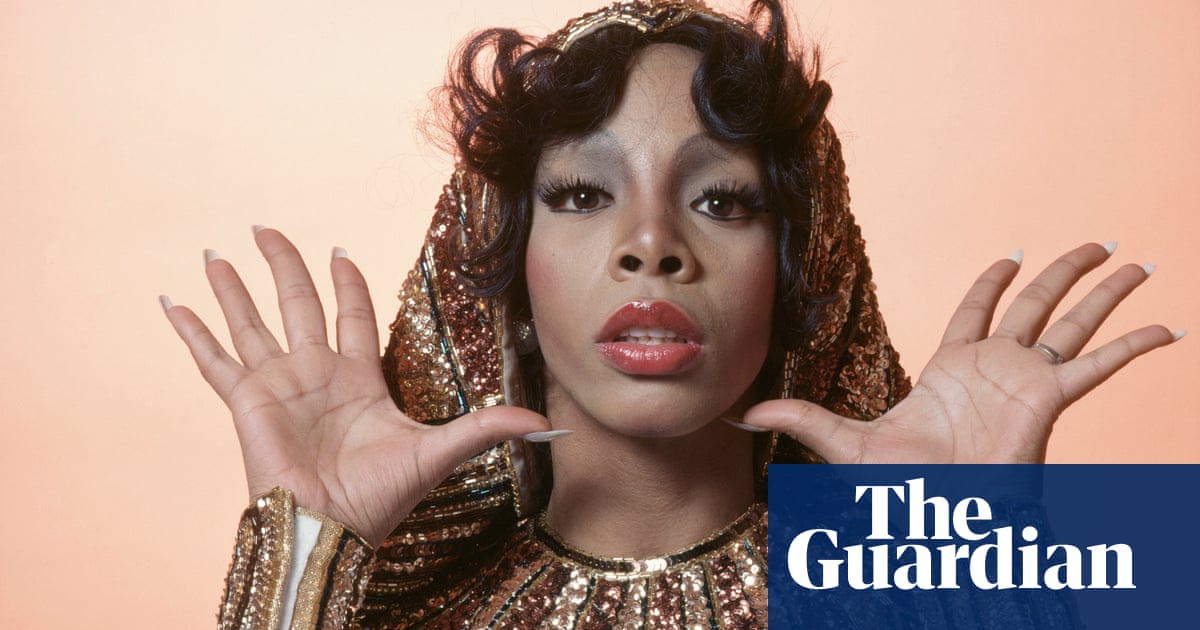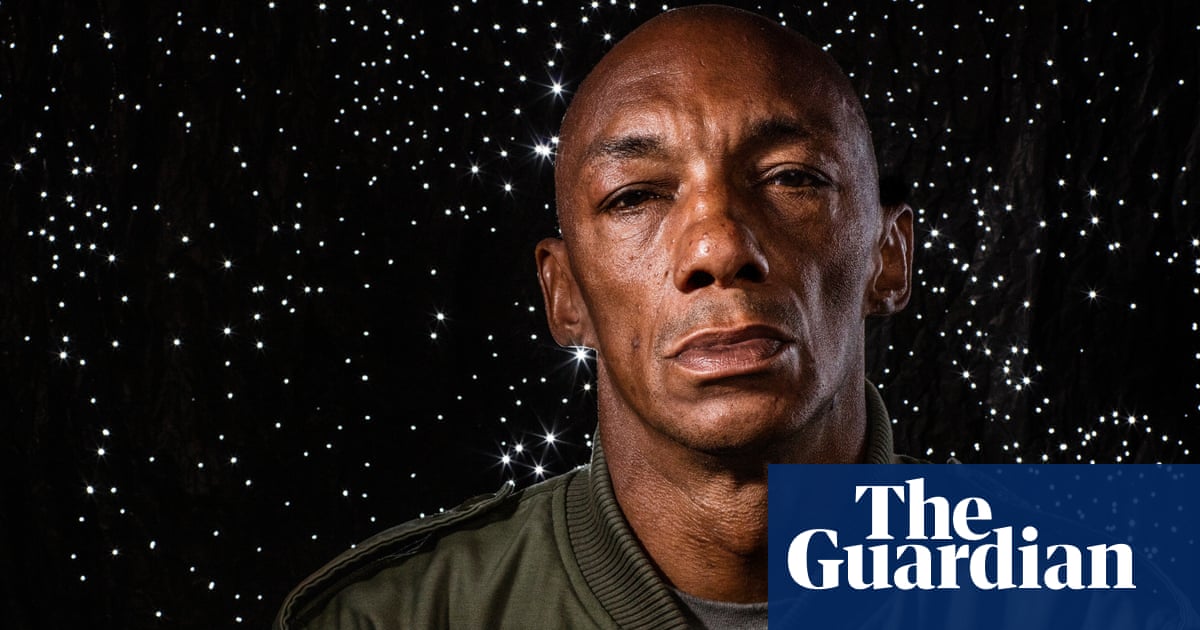
peaking on a video call from Massachusetts, Ryley Walker is obscured by a blaze of sunlight coming through a large open window as he filters out the air in his apartment. “I must give up smoking,” the singer-songwriter frowns, lighting up his third cigarette.
Given how much Walker has had to give up over the last few years – emerging from the drug and alcohol dependency that shaped his adult life – it’s hard to begrudge him one last remaining vice. Walker, who attempted suicide as a consequence of his addictions, says that being here today is “a miracle”. His career-best new album – the proggy, unexpectedly pretty Course in Fable – is the sound of an artist treating his life as such.
The 32-year-old was raised working-class in the formerly industrial “rust belt” city of Rockford, Illinois. “There was no culture there,” he says. “That work-to-the-bone, hide-your-emotions middle America thing.” Though his parents had little interest in music beyond classic rock radio, Walker taught himself guitar and moved to Chicago, which became his home over a decade, joining “Sonic Youth ripoff bands” as well as buying and selling rare records. “I was super down to be broke for the rest of my life, and I went on that trajectory of mind-shattering, soul-crushing, money-losing tours.”
That was until Walker’s interest in fingerpicking led him to the UK folk rock canon of the 70s – the era when artists such as Bert Jansch and Fairport Convention made visionary, stirring records from the raw material of traditional English song – and he began writing and recording in that style. In 2015, Walker’s second album, Primrose Green, became an unexpected critical hit for its faithful, if overly nostalgic, rendering of that era. Walker quickly soured on its success – the Chicago city kid miscast as a Nick Drake-style rustic troubadour – and in interviews called it “a terrible record”. He winces when I bring that up.
“That unfiltered hate I had towards it was maybe a bit childish,” he says. “I’m a pretty self-aware and poor salesman, so I immediately shit on it. I’m happy it came out but there’s no way I could do that now – I’m getting too fat for the cool pants.”
Extricated from that sound, his creativity flourished through a string of studio albums, collaborations and live records – trading pastoral classicism for urban experimentalism and diving into the intersections between noise, free jazz, folk and psychedelia. An ardent Genesis fan, Walker is one of many younger artists currently bringing prog rock in from the cold.
“Punk and indie obviously disarmed prog pretty heavily in the 70s and 80s. Like: this is old-guard shit,” he says. “But even the dorky stuff that’s about finding a mythical beast, I see it as the most free music.” If that sense of freedom is important on Walker’s new album, that’s because it comes from hard-won personal revelation.
When I speak to him, he is days away from marking two years sober. “Getting just two days sober was impossible since I was a kid,” he says calmly. “It was clear from the start that I was obsessed with this shit, and I didn’t care about anything else.” By 2018, he was addicted to heroin, cocaine and alcohol. “Drop me in Butthole, America, and I’ll find the guy with pills. That’s the kind of addict I am,” he says. “I’m resourceful for the very worst shit.”
Supporting folk godfather Richard Thompson on a tour of North America in 2019, Walker began to feel his life had become unmanageable. “There was this big stew of shitty weather all over the mountain states, Colorado, Idaho, and I didn’t know anybody,” he says. “I was following his bus in this dinky rental car, being driven eight or nine hours every night alone. That was my point of madness. Dopesick every day, having trouble finding drugs to keep me from getting sick.”
Walker began talking to himself and fighting suicidal thoughts. “I hated myself and music at that point. I sucked live, I looked like shit, I was waking up in cold sweats.
“I couldn’t think my way out of this on my own. I thought: I’ve set rules for myself and I’ve broken them all; this is only getting worse.” He booked into a desert motel and attempted suicide.
“I took a concoction that was sure enough to put me on my ass and kill me,” he says carefully, “but I woke up. I somehow woke up – thank God, Buddha, whatever is out there.” A pause. “When you try to kill yourself and it doesn’t work, that obviously is a turning point.”
Still using drugs, Walker returned to his home in New York and contacted his record label for help. Within 24 hours, the label Secretly Canadian and Grammy-affiliated non-profit MusiCares had put Walker on a flight to a rehab centre in Nashville. “Once I got there, I thought I was an alien and couldn’t relate to anybody – mostly southern rednecks absolutely fried from their drugs of choice.”
Group therapy sessions, initially daunting, became startlingly emotional. “You hear somebody in the room who’s got seven days [sober], who’s got 30 days, and then somebody that’s got seven years. Just: ‘What?’ A life without this stuff is possible? And all of their stories, they’re a lot like yours.”
Walker found that there were meetings in New York he could attend, day or night. And then the pandemic hit.
“It’s really bad for people in my situation,” he says. “I like to see people in recovery, go on walks, go to a diner after a meeting, but I had to become a lot more willing to make it work. I had to call people on the phone a lot. I’ve had some of the darkest moments of my life in sobriety, but I still haven’t managed to drink or use, which is this weird miracle.”
The change in circumstances forced a shift in approach. Where previous albums had been sculpted from heavy improv sessions, this time Walker sat down and began working on tightly authored songs. “I’d never written in a state of joy,” he says. “There’s a lot of happiness in the music now, there’s more personality. It was like re-meeting myself all over again.”
Where stormy Deafman Glance (2018) sounded frazzled and abstract, the first sound you hear on Course in Fable is exalting major chords, before burrowing into fiddly prog shifts in time signatures. It’s the strongest material of his career so far, with his collaborators including the celebrated Chicago producer John McEntire of post-rock group Tortoise. On Rang Dizzy, Walker sings: “I am so fried / fuck me, I’m alive.” Walker is self-releasing the album on his own Husky Pants label – a matter of pride for the former record merchant.
That work ethic was evident throughout a winter in which he clocked in at 8pm to work at the department store Target, stacking shelves on the night shift for minimum wage. “It’s not cosplay as a working stiff,” he laughs. “I really needed the money.”
Walker enjoyed his new routine. “I got to know a lot of things that I’d missed out on. As stupid as it is, I like turning up and doing something outside of music. It’s great to be with people who are like, ‘Who is Sun Ra?’
“I don’t have the answers, but I know this works for me,” he says gazing out of the open window. “I think it’s possible to live without drugs and alcohol in pain and death now, and I never thought that would happen, and I’m very humbled by life right now. I’m grateful to be able to live.”
Cause in Fable is out now on Husky Pants.
In the UK, Samaritans can be contacted on 116 123 or email jo@samaritans.org. You can contact the mental health charity Mind by calling 0300 123 3393 or visiting mind.org.uk












